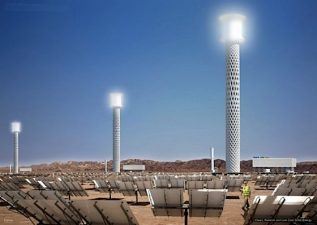A fleet of oil tankers is heading from Saudi Arabia to the US in order to drive down “unjustified” oil prices of $127 per barrel. Saudi Arabia’s current capacity of 9.9 million barrels per day already exceeds self-imposed OPEC quotas. Saudi Petroleum minister Ali Naimi said production could go up another 25% to 12.5 million barrels per day, if necessary. To put this into perspective, despite the fact that Alaska’s Arctic National Wildlife Refuge (ANWR) oil reserve has been a cornerstone of U.S. political wrangling for decades, pumping at this rate would deplete ANWR in 21 months.
Dumping Oil, What Does it Mean?
The phrase “oil dumping” can be used to describe illegal oil disposal or accidents such as BP’s Deepwater Horizon disaster. But in the context of world trade, dumping has a special meaning. A commodity is dumped into a market, often below production cost, in order to suppress or squeeze out competition.
The World Trade Organization (WTO) generally frowns on dumping, but enforcement is inconsistent. U.S. officials are hypersensitive to the dumping of steel and aluminum but the U.S., E.U. and Japan protested when China stopped dumping rare earth metals. In an overlooked bit of ironic timing, the United States Department of Commerce imposed a 2.9% to 4.73% anti-dumping tariff on Chinese photovoltaic solar panels on March 20th, the same day Ali Naimi announced his plan to force oil prices lower.
How Does the WTO Define Dumping?
The WTO’s GATT treaty of 1994 defines dumping as:
Article VI: Anti-dumping and Countervailing Duties
1. The contracting parties recognize that dumping, by which products of one country are introduced into the commerce of another country at less than the normal value of the products, is to be condemned if it causes or threatens material injury to an established industry in the territory of a contracting party or materially retards the establishment of a domestic industry…
This ‘green tariff’ the U.S. imposed on Chinese photovoltaic panels amounts to 5 to 10 cents per watt and isn’t expected to impact China’s solar power industry. Threats of a trade war with photovoltaic tariffs as high as 30% might be enough to shift production from China to Taiwan or central America but even this is unlikely to revive the struggling U.S. photovoltaic industry.
Retarding the Establishment of Domestic Industries
Cheap oil materially retards the establishment of domestic green technology, alternative energy, domestic oil, biofuel and, yes– even solar industries. But no WTO complaints or tariffs have been raised against such “oil dumping.” U.S. Energy secretary Stephen Chu recently backed down from statements that he would like to see oil prices rise. A smear campaign against green energy and efficiency is in full force and Republican presidential candidates are trying to outdo each other as to who is the most friendly to the oil industry.
Unjustified Prices or Dumping?
Ali Naimi said that current oil price of $127 per barrel is “unjustified.” While it’s true that a component of this price can be explained by Wall street speculators betting on a war, there is another reason prices are high. Oil demand continues to increase in China, India and South America while supply is stagnant or falling. Drilling in the high arctic and miles beneath the sea and the interest in extracting oil from shale even with its anemic energy return on investment (EROI) are indications that the easy oil is gone.
What if Oil Prices Stay High?
An article in the September 1990 issue of Scientific American evaluated alternative motor vehicle fuels. It concluded that none were economically viable unless gasoline reached the unthinkable price of $1.80 per gallon. Three months later Operation Desert Storm ended Saddam Husein’s occupation of Kuwait and drove gasoline prices well over $2.00 per gallon. Average gasoline prices in the U.S. have reached an all-time high of nearly $4.00 per gallon.
Even the most lethargic Detroit car companies responded to oil price spikes in the mid 1970s and late 1980s. U.S. automobile gas mileage peaked in 1987. But then oil spigots were turned on and once again it was affordable for Americans to drive 50 miles to work and take the kids to school in 10 mpg Hummers. Solar panels were torn from roofs, cities sprawled out and a global trade infrastructure expanded around the promise of cheap oil.
Oil dumping has retarded the development of domestic green energy industries far more than a handful of fledgling Chinese solar panel companies ever could. But in the entrenched politics and lopsided economics of oil, this simple fact seems to have slipped past everyone but me.
Image of camel and oil refinery from Shutterstock




